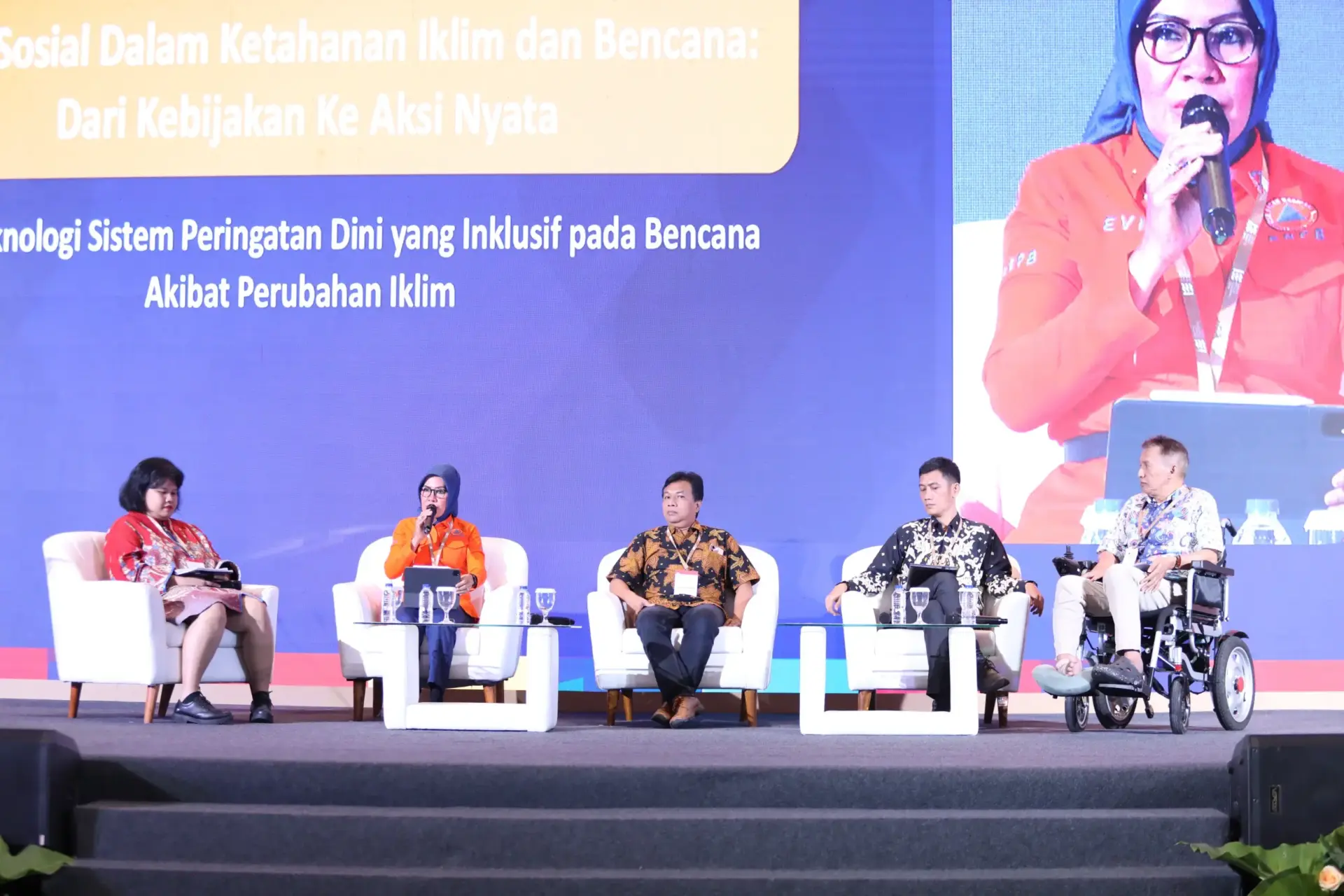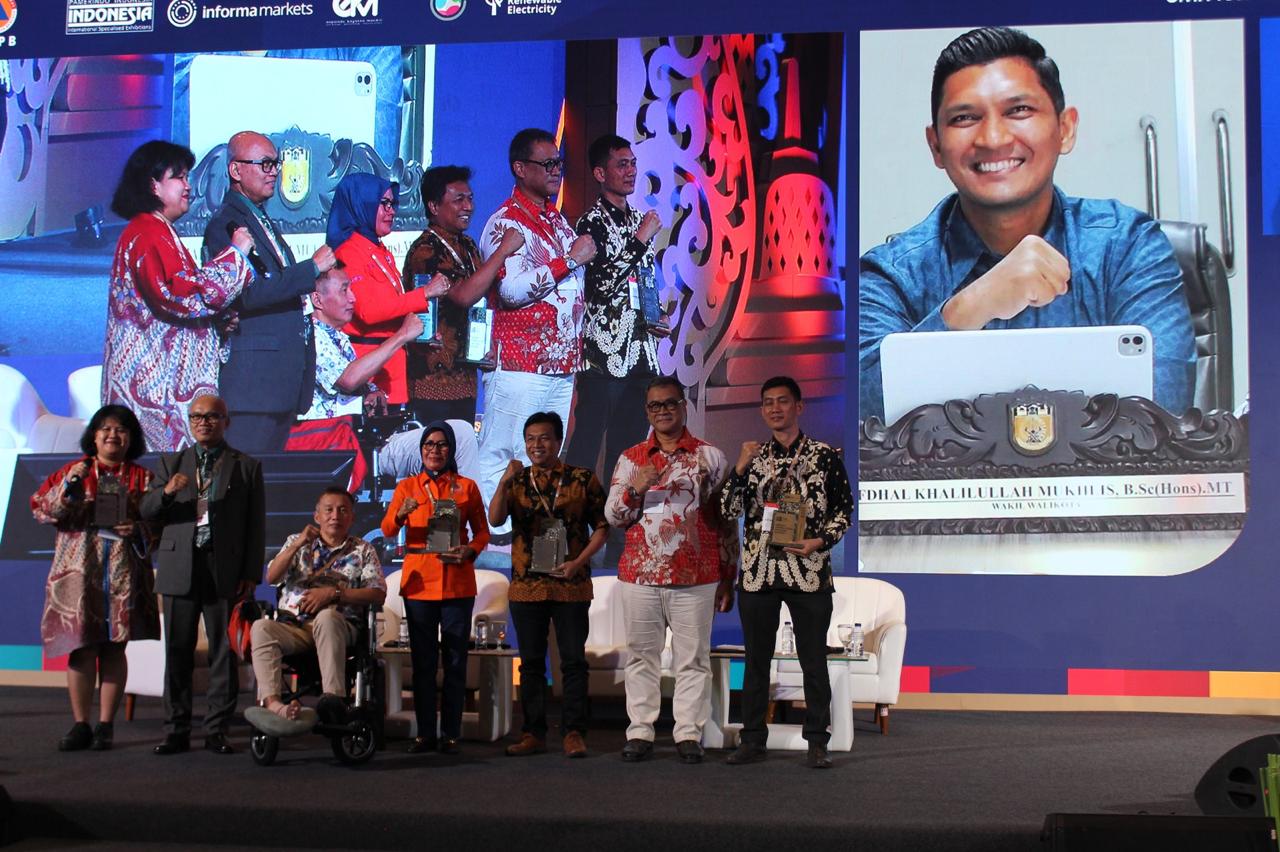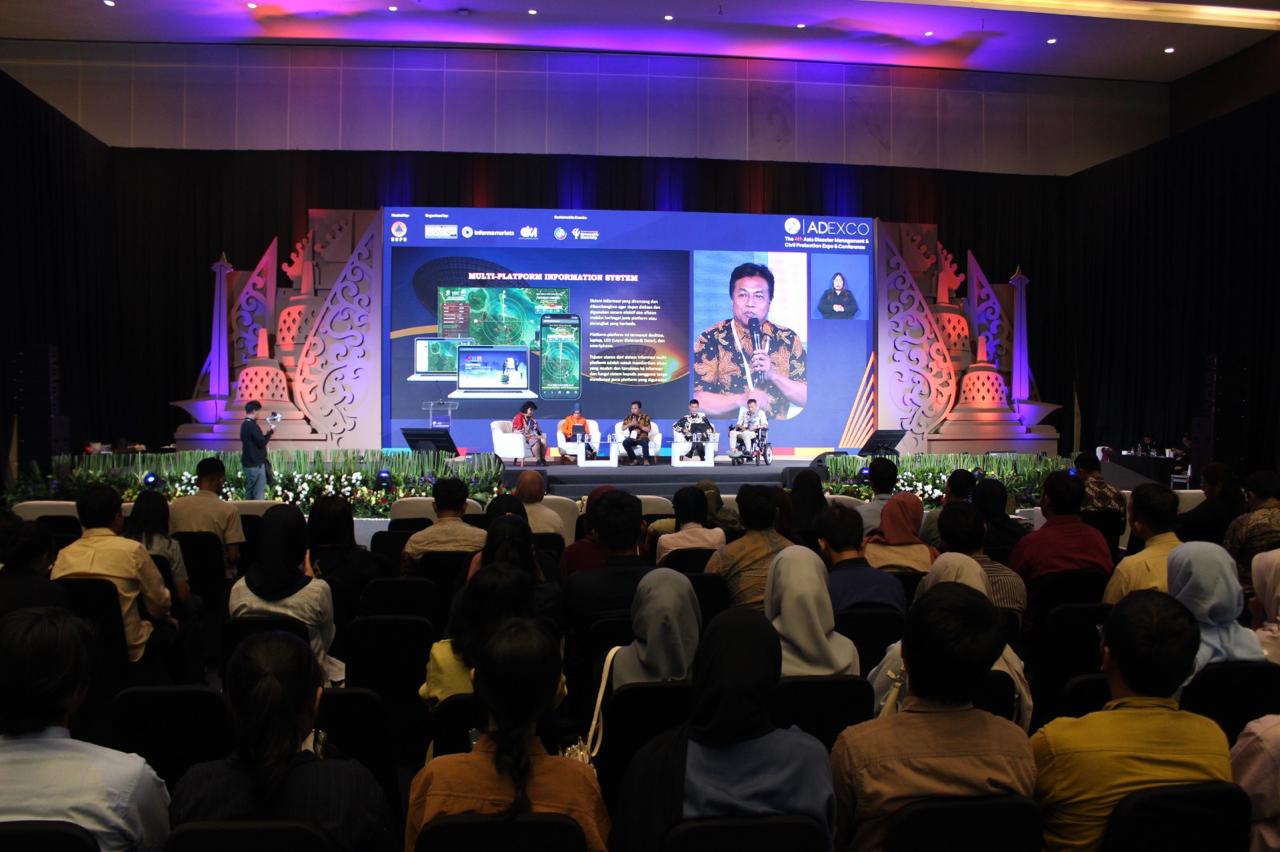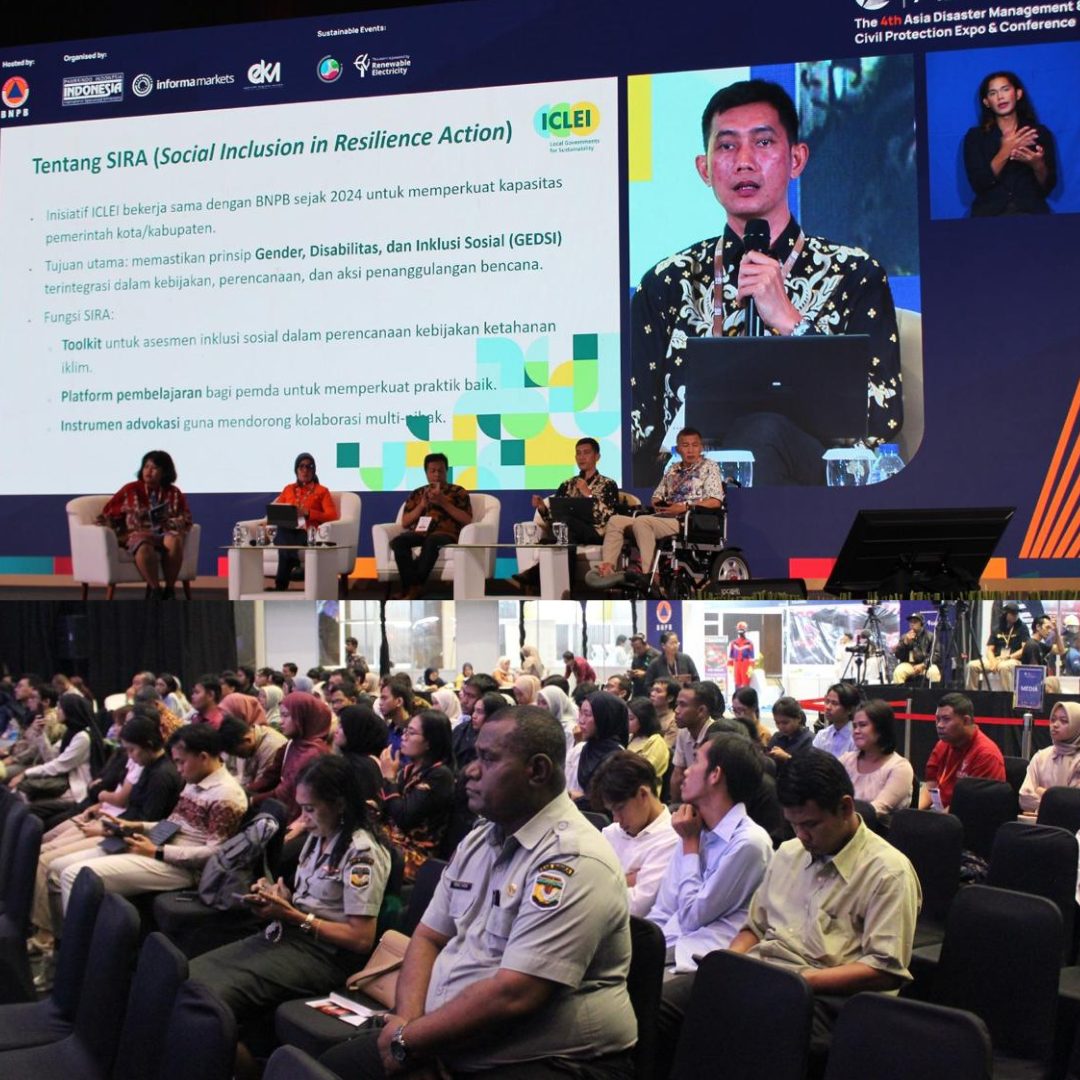
ICLEI and BNPB advance inclusive climate resilience in Indonesia at ADEXCO 2025
/
A panel discussion titled “Social Inclusion in Climate and Disaster Resilience: From Policy to Real Action” was held on Friday (September 12) at Hall B3, JIExpo Kemayoran, Jakarta. Photo source: BNPB
As the climate emergency grows more intense, Indonesia continues to face rising disaster risks. Throughout 2024 alone, the National Disaster Management Agency (BNPB) recorded over 2,100 disasters nationwide—the majority being floods, landslides, and extreme weather. These events disproportionately impact vulnerable groups such as persons with disabilities, the elderly, women, children, and marginalized communities—groups that are too often left out of disaster protection and recovery systems.
Addressing this growing challenge, ICLEI – Local Governments for Sustainability Indonesia, in collaboration with BNPB, convened a national seminar titled “Social Inclusion in Climate and Disaster Resilience: From Policy to Action” at ADEXCO 2025 (Asia Disaster Management & Civil Protection Expo & Conference), on 12 September held at JIExpo Kemayoran, Jakarta.

The seminar brought together nearly 200 in-person and hybrid participants, and featured speakers from key ministries like the Ministry of Home Affairs (Kemendagri), Ministry of National Development Planning (Bappenas), Ministry of Women’s Empowerment and Child Protection (Kemen PPPA), Ministry of Environment (KLHK), BNPB, and National Research and Innovation Agency (BRIN); local authorities at the city, district, and provincial levels; academics; non-government organizations; and civil society leaders, to enrich discussion and strengthen collaboration in inclusive and climate-resilient development.
“Strengthening governance, financing, and adopting fitting technology is key to developing a disaster risk management system that reaches every level—from national to local,” said Arif Wibowo, Country Manager of ICLEI Indonesia. “Integrating inclusivity into every step of planning and implementation makes our resilience efforts not only stronger, but fairer. The diversity of perspectives across sectors enriches our collective capacity to mitigate and adapt to the climate crisis.”
Echoing this message, Dr. Raditya Jati, BNPB’s Deputy for Systems and Strategy, emphasized the need for stronger alignment between national and local policies to ensure that no one is left behind.
“It’s time to move away from working in silos. Disaster management, climate change adaptation, and sustainable development must be addressed together. The National Development Plan/RPJMN’s spirit of adaptive social protection reflects a shift toward linking social welfare with disaster risk reduction. With collaborative action and the support of our development partners, we can make resilience both holistic and transformative.”
Driving Solutions through Innovation and Collaboration

The seminar featured a dynamic panel discussion with experts from various sectors, including Dra. Andi Eviana, M.Si, Head of BNPB’s Planning Bureau, who discussed aligning national and local Gender Equality, Technology, and Social Inclusion (GETSI) policies as outlined in the recent BNPB Strategic Plan (Rancangan Renstra BNPB).
Farhan Helmy, President of the Movement for Persons with Disabilities and the Elderly (DILANS), spoke about enabling vulnerable communities to engage meaningfully in disaster preparedness and response through innovative and AI-based tools like the Inclusive District Platform (IDP). It was piloted in three cities—Bandung, Semarang and Yogyakarta—where communities co-create data-driven policy solutions.
Albertus Sulaiman, Head of Climate and Atmospheric Research and Innovation at BRIN, presented tool like X-band radar app as an inclusive and adaptive early warning system that provides data and information collected from community reports and various sensors for weather, fires, and haze, making the information more accurate to address community needs.
Afdhal Khalilullah, M.T, Deputy Mayor of Banda Aceh, also shared lessons learned from building local resilience and early warning systems following the 2004 tsunami. He explained that tidal flooding is predicted to affect about 8.61% of Banda Aceh’s total area, home to a population of 262,960. However, 54.2% of residents are still considered unprepared to face coastal hazards such as tidal floods. Strategies are therefore being developed to integrate coastal hazard information through programs like SMAB and Climate Village (Proklim).

The event concluded with ICLEI Indonesia’s presentation of the Enhancing local capacities in socially inclusive resilience in Asia (SIRA) Toolkit—a practical framework designed to help local governments develop concrete, inclusive strategies for responding to climate risks and protecting vulnerable populations.
Through this collaboration, ICLEI Indonesia and BNPB reaffirmed their shared commitment to strengthening synergy between national policies, technical assistance, and local innovation—building cities that are not only resilient to disasters, but also inclusive, equitable, and sustainable.
This news article was written by Juniarti Elisabeth Sinaga, ICLEI Indonesia Membership and Communications Officer.

